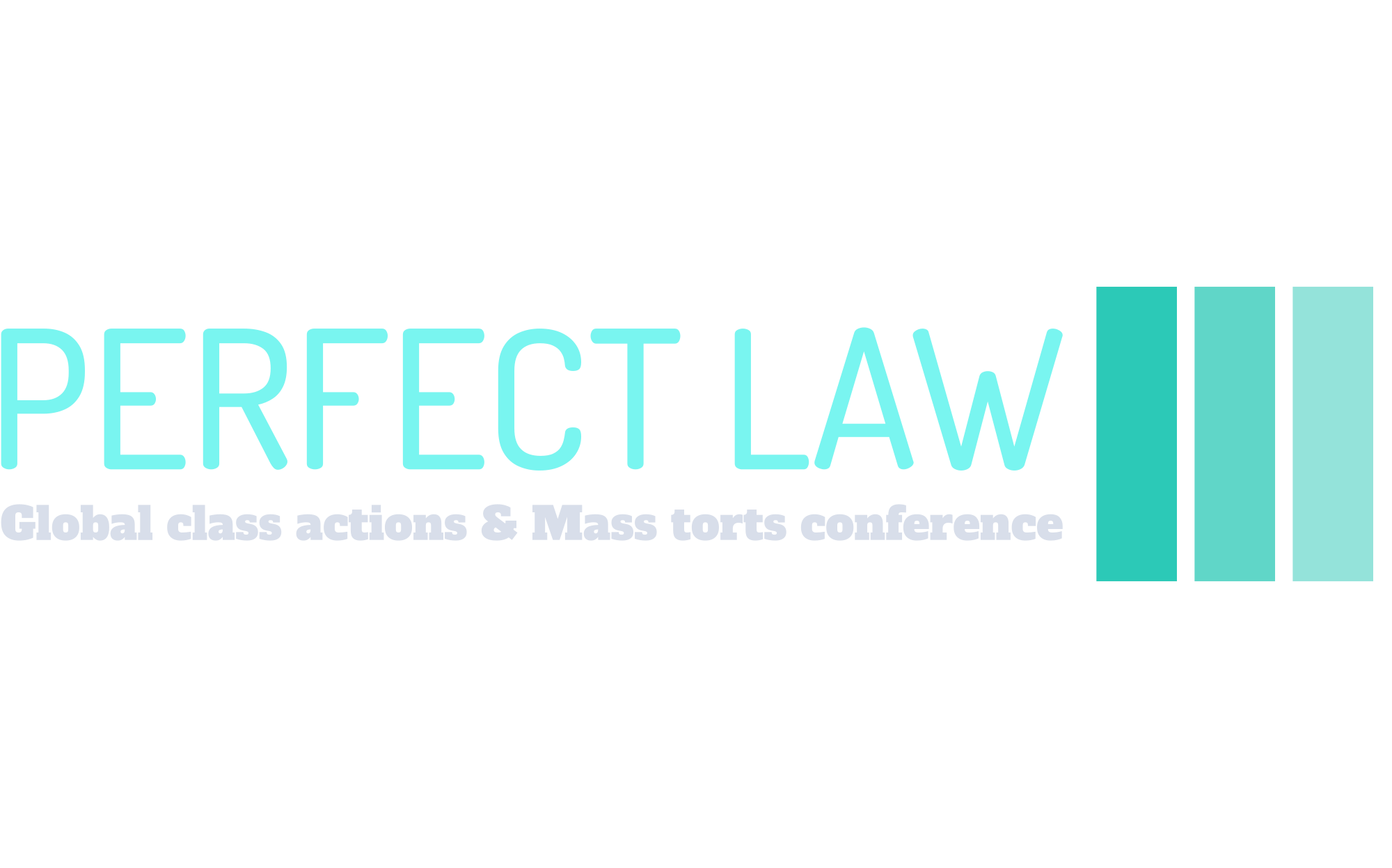Even though the decision of the Supreme Court of the United Kingdom (“UKSC”) of 26 July 2023 in R (on the application of PACCAR Inc and others) v Competition Appeal Tribunal and others[1] to qualify certain types of litigation funding agreements (“LFAs”) as damages-based agreements (“DBAs”) within the meaning of Section 58AA(7) of the Courts and Legal Services Act 1990 (“CLSA”) had been heavily foreshadowed in the hearing on 16 February 2023, it still appears to have caught most observers off-guard. The picture of the judgment “sending shockwaves through the industry” was invoked multiple times in the numerous comments and indeed, the fallout of this decision will keep funders on their toes for the foreseeable future.
Background of the decision
The proceedings which led to this decision were a piece of satellite litigation of the Truck Cartel collective proceedings currently in the Competition Appeal Tribunal (“CAT”): Two organisations, UK Trucks Claim Ltd (“UKTC”) and the Road Haulage Association (“RHA”) had applied for a Collective Proceedings Order (“CPO”) in respect of follow-on claims for damages for the infringement of competition law by five major European truck manufacturers. UKTC sought to bring collective proceedings on an opt-out basis, while the RHA wanted to proceed on an opt-in basis.[2] Some of the defendants argued that it would not be “just and reasonable” to authorise either as Class Representative due to the applicants supposedly not having sufficient funding arrangements in place. According to the defendants, the percentage-based LFAs of the claimants constituted DBAs for the purposes of the relevant statutory regulations and were therefore, since they did not comply with these statutory regulations, unenforceable and unlawful pursuant to Section 58AA CLSA 1990.
Section 58AA(3) CLSA 1990 defines a DBA as “an agreement between a person providing advocacy services, litigation services or claims management services and the recipient of those services which provides that the recipient is to make a payment to the person providing the services if the recipient obtains a specified financial benefit in connection with the matter in relation to which the services are provided, and the amount of that payment is to be determined by reference to the amount of the financial benefit obtained.”
The term “claims management services” was originally defined by reference to Section 4 Compensation Act 2006, according to which “’claims management services’ means advice or other services in relation to the making of a claim” (Section 4(2)(b)) and “a reference to the provision of services includes, in particular, a reference to the provision of financial services or assistance” (Section 4(3)(a)(i)).[3]
Hence, the defendants argued that litigation funders as providers of “financial services” provide “claims management services” pursuant to Section 4 Compensation Act 2006, and that (percentage-based) LFAs subsequently were to be qualified as DBAs. As the LFAs at issue in the case did not satisfy the requirements in the Damages-Based Agreements Regulations 2013 (SI 2013/609) (“the DBA Regulations 2013”), they would therefore be unenforceable by virtue of Section 58AA82) CLSA 1990.
This line of reasoning was rejected first by both the CAT[4] and a Divisional Court.[5] Both courts held that the LFAs in question did not constitute DBAs and were enforceable.
The decision of the UKSC
The majority of the UKSC, however, thought otherwise: In what was ultimately an exercise in statutory interpretation (of the Compensation Act 2006), the court first stated that subsequent and non-contemporaneous acts like the DBA Regulations 2013 could not assist in interpreting earlier legislation; the same holds true for subsequent events, such as Lord Jackson’s endorsement of litigation funding in his 2009 report, or the Association of Litigation Funders’ (“ALF”) Code of Conduct.
The UKSC then went on to observe that in 2006, the term “claims management services” did not have an established legal meaning, nor a generally accepted meaning in ordinary parlance. Rather, Parliament deliberately chose wide words of definition, in order to leave ample room for subsequent, more tailored regulation of the developing area of activity by the Secretary of State.
The UKSC also noted that the definition of “claims management services” is not tied to any concept of active claims management. To that effect, the court rejected the Divisional Court’s interpretation of the Compensation Act 2006 as regulating only “claims intermediaries”, stating that the scheme was to regulate activities, not persons. Regarding Section 58B CLSA 1990[6] which was brought on the statue book in 1999, but never into force, the UKSC found that already in 2006, it had become clear that this provision did not provide a comprehensive scheme of regulation for litigation funders and therefore did not influence the interpretation of Section 4 of the Compensation Act 2006.
Having finished this exercise in statutory interpretation, the UKSC succinctly pointed to the real problem: sloppy legislation. It’s not the definition of “claims management services” in Section 4 of the Compensation Act 2006 (and now Section 419A FSMA 2000), it’s the general and immediate reference to this provision in Section 58AA CLSA 1990 which is at the heart of the issue. None of the developments “on the ground”, be it Lord Jackson’s stance towards litigation funding or the ALF Code of Conduct, could mend this legislative oversight, the majority of the court held.
Lady Rose dissented, defending the position taken up by the CAT and the Divisional Court.
Aftermath and outlook
In the days following the judgments, funders and industry voices tried to calm the waves by pointing out that the definition of DBAs in Section 58AA CLSA 1990 only encompasses percentage-based fees, but not fees calculated as multiple of committed or invested capital. While in the last years, the industry apparently witnessed an increasing trend in structuring fees as multiples instead of percentage-based fees, many funders also related that they spent the last months renegotiating their LFAs in this way as a hedge for the anticipated judgment.
Still, the UKSC’s decision will plunge the industry into considerable uncertainty regarding a whole range of issues:
- The question of whether Section 58AA CLSA 1990 also encompasses fees structured as multiples simply begs for a string of further satellite litigation. The coming months probably will see emboldened defendants challenging LFAs in this way or another.
- Restructuring LFAs in compliance with the DBA Regulations 2013 would be an obvious way out, but this is easier said than done, given the notorious shortcomings of the Regulations. The fact that they only allow for fees net of costs while simultaneously capping the fees at 50% of the sums ultimately recovered by the client doesn’t help, either.
- The situation is especially dire in collective proceedings. These massive proceedings absolutely depend on third-party funding, but Section 47C(8) of the Competition Act 1998 explicitly renders any DBA unenforceable if it relates to opt-out collective proceedings.
- Many contemporary LFAs are structured as defining the fees payable on success as the greater of a multiple of invested capital or a percentage of the damages received. Can the reference to the percentage-based element be severed, and will the LFAs be enforceable without it?
- Lastly, how will the funders’ clients react to these news? In ongoing cases, a renegotiation of the LFAs should be in everybody’s interest, but what about historic concluded cases? Clients may think of challenging any payment they made to a funder under an LFA containing a percentage clause, and some of them may even be duty-bound to take these steps.
In summary, even one month after the decision, the dust hasn’t settled yet. It remains to be seen whether it will put some funders out of business permanently, whether it will usher in a period of consolidation of the funding industry, and how this will affect the appeal of the UK as a market for litigation funding. Another unknown is whether and how Government will react to the new reality. It should be noted that a reform of the DBA legislation has been on the table since 2015, and that it was recommended numerous times to expressly exclude LFAs from the scope of the DBA Regulations. Maybe the judgment will serve as a long-overdue wakeup call.
Johannes Nickl[7]
[1] R (on the application of PACCAR Inc and others) v Competition Appeal Tribunal and others, [2023] UKSC 28.
[2] In respect of the dispute over carriage, the Court of Appeal on 25 July 2023 held that the CAT in deciding to grant a CPO pursuant to which the RHA was made class representative in preference to UKTC did not err in law, see UK Trucks Claim Ltd v Stellantis NV & Ors [2023] EWCA Civ 875.
[3] Since 2019, “claims management services” is defined in Section 419A Financial Services and Markets Act 2000 (”FSMA 2000“), in very similar wording.
[4] UK Trucks Claim Limited v Fiat Chrysler Automobiles N.V. and Others [2019] CAT 26.
[5] Paccar Inc & Ors v Road Haulage Association Ltd & Ors [2021] EWCA Civ 299.
[6] Section 58B CLSA 1990 regulates LFAs, where the funder’s fee is calculated by reference to the funder’s anticipated expenditure in funding the litigation.
[7] Doctoral Candidate at Heidelberg University, Germany.
Foto Credits: böhringer friedrich



